Meet Joe Miller.
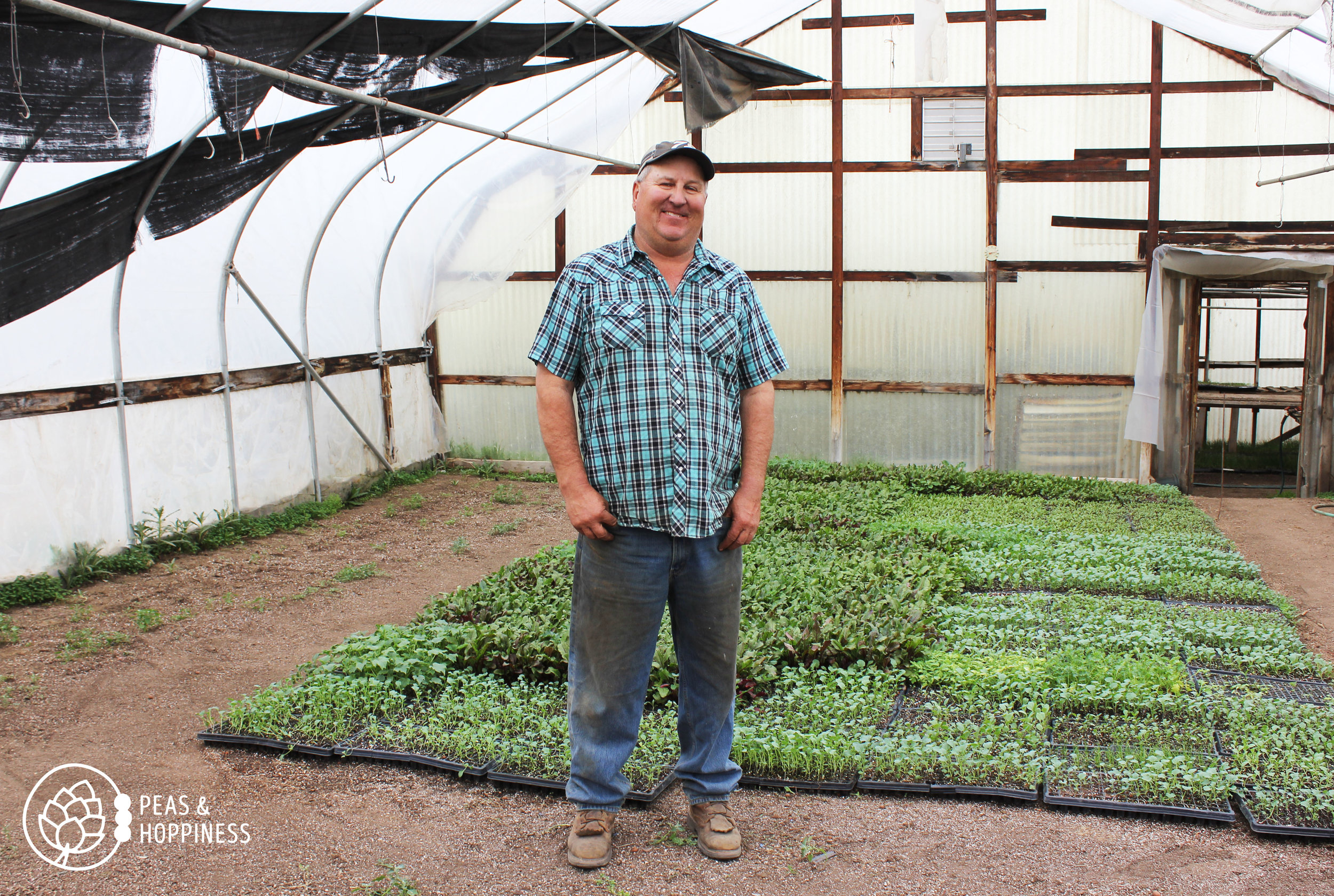
Joe Miller of Miller Farms
Joe and his wife, Chris, are the full-time owners/operators of Miller Farms, a medium-sized vegetable farm in Northern Colorado. Miller Farms consists of 400 acres of vegetables, additional acreage in field corn, and a few more acres of hay.
In addition to farming, a couple of years ago they started to raise cattle for beef – but it’s not much – they originally got into cattle because their kids and grandkids liked to work with them. This sentiment is telling of why Joe is involved in farming at all: his passion is teaching kids and adults where food comes from. He wants to make food affordable.
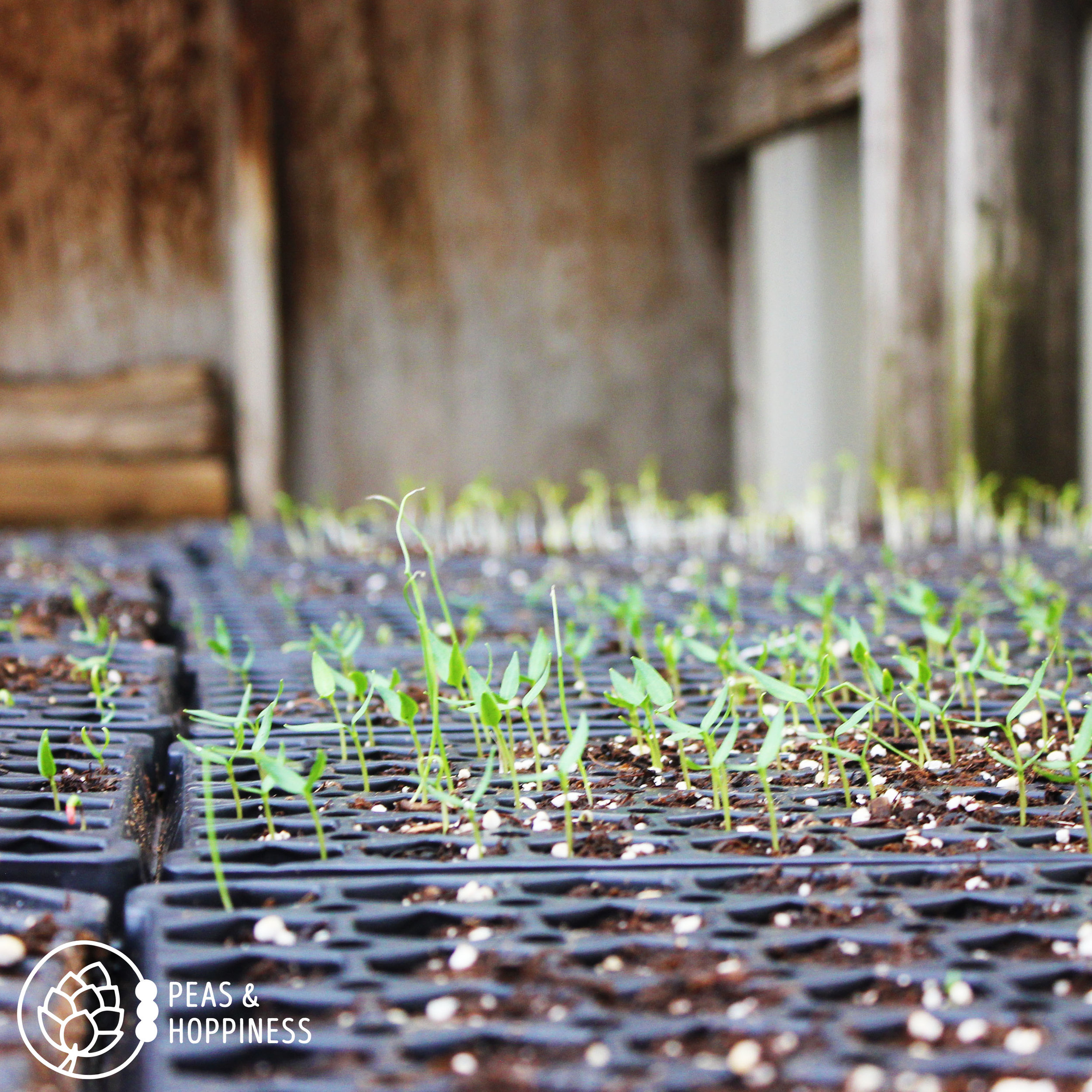
Grow, baby, grow! Greenhouse babies getting ready for planting
“We grow just about anything,” says Chris. The most popular vegetables are sweet corn and potatoes, but in the last five years kale has risen to the top of the list. In addition, their farm yields broccoli, cabbage, kohlrabi, carrots, beets, leeks, and more vegetables than my note-taking could keep up with.
Joe and Chris grow what they want – and what there is demand for. Like other farmers, for Joe Miller sustainable means able to make a living.
“It’s nice to say you’re using compost – and we do use compost and manure – but the biggest concern is whether or not you can make money doing it,” explains Joe. Miller Farms currently markets their produce on site at their farm and at Farmers’ Markets all along the Front Range.
Joe loves the farmers’ markets, but it’s a tough business; by his estimate, only about 1% of Fort Collins’ population frequents Farmers Markets. In contrast, he estimates about 10% of the population needs to regularly visit the markets to truly be successful. This is despite government programs such as SNAP (Supplemental Nutrition Assistance Program, formerly referred to as “food stamps”), which offers to double the dollar value a customer has; if someone gets $10 per month in SNAP benefits, that $10 is worth $20 at a farmers’ market. “People assume that Farmers’ Markets are more expensive, but that’s not always the case.”
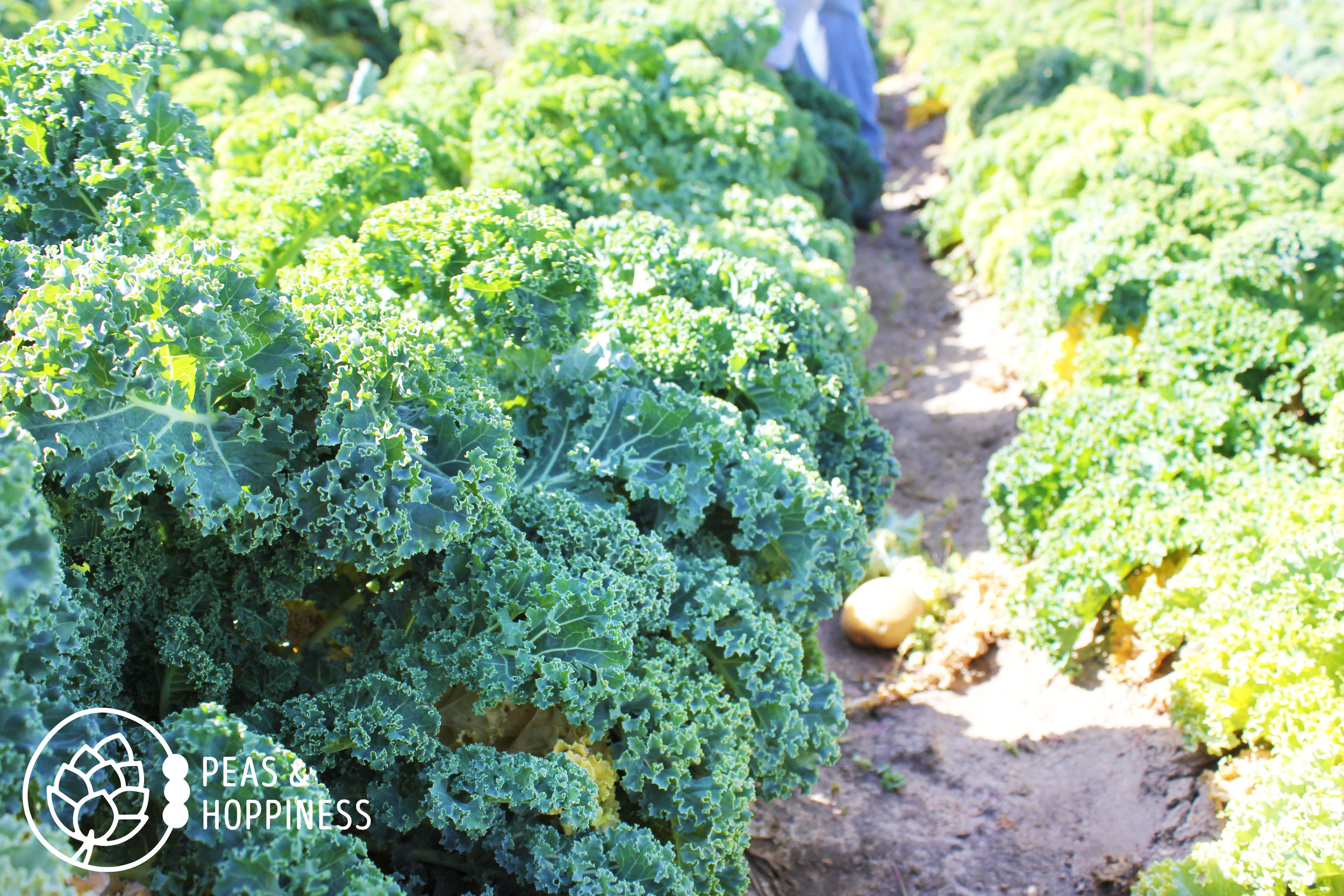
Beautiful kale ready for picking at Miller Farms’ Fall Festival
As it is, he’s often left with a pile of extra produce at the end of the day. What happens to the leftover produce? Miller Farms donates 200,000-300,000 pounds of produce every year to local food banks and churches.
“We need to eat local to be sustainable,” says Joe. “If we grow a semi-load of produce on our farm, it only has to travel 30 miles. It’s not environmentally friendly to grow produce half-way around the world.”
>
“People assume that Farmers’ Markets are more expensive, but that’s not always the case.”
Unfortunately the major challenge to eating locally is a lack of understanding of the seasonal nature of produce in Colorado. Consumers demand year-round products, but produce like sweet corn isn’t available in Colorado in March.
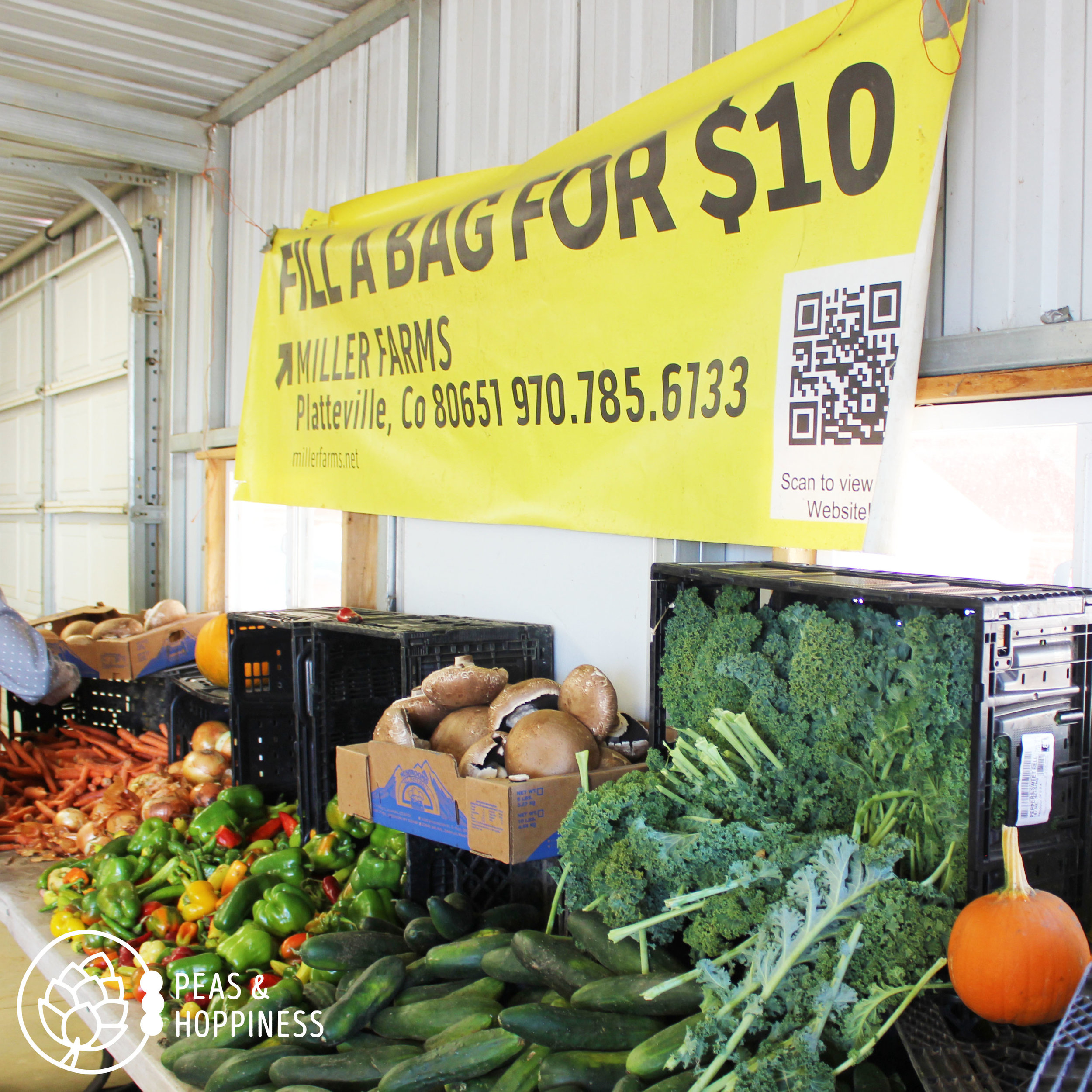
Produce at Miller Farms
Miller Farms partners with other growers around the country to fill in gaps when markets start earlier than their growing season. Pueblo, Colorado has warmer weather and so has cantaloupe and sweet corn available sooner than the Northern Colorado area. Joe buys produce from farms in California and Texas before vegetables ripen on his farm so the tables aren’t barren at the Farmers’ Markets; if consumers see empty space, they don’t stop at all.
Like other farmers, Miller Farms operates with razor-thin margins. Input costs are high – seed, labor, land rent – and output dollars are low. Add to this dishonest farmer’s market employees or defaulted payments for produce he’s sold – and this margin becomes even thinner.
It’s been hard for Miller Farms to expand because of lack of land; the population growth in Northern Colorado has eaten up much of the surrounding farmland. Joe points across a field, where a natural gas company has recently taken out almost twenty 160-acre farms.
Joe’s dad started farming in 1949 with a small garden of “a little of everything” and a chicken coop. His dad left a can out for people to throw coins in when they picked up produce. At the age of five, Joe remembers his first big market weekend on Labor Day in 1968.
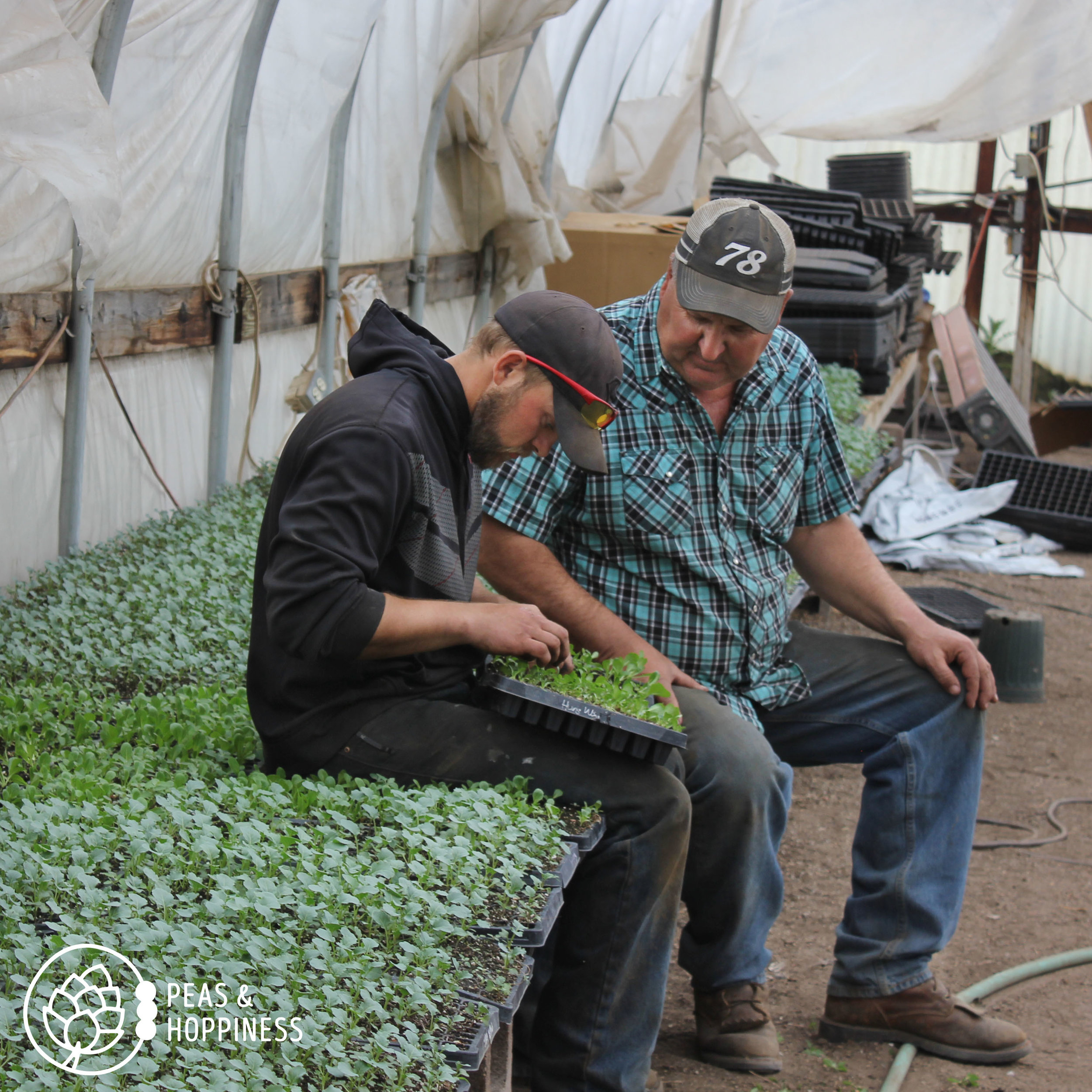
Joe with future farmer Andy weeding beds of seedlings
Chris joined Joe at the farmers’ markets in 1980. She and Joe were high school sweet hearts; they married shortly after graduation.
Miller Farms is truly a family farm, with almost the whole family involved. Joe and Chris’s daughter Shelli and her husband, Andy hope to take over the farm someday. Unfortunately, there are lots of risks young people take to get into farming. It’s also incredibly expensive. “You either have to inherit it or marry it,” says Joe of getting into the farming business.
Although low selling prices and high input costs can be infuriating, weather is the biggest challenge to his return on investment. Joe’s farm has been both hailed out and flooded within the last five years – but crop insurance doesn’t exist for his type of farm.
In thinking about the future of Miller Farms, Joe is certain the Fall Festival will be what keeps the farm afloat. The Fall Festival is the farm’s biggest event and runs from Labor Day through Mid-November. It offers kids and adults the opportunity to come to the farm, pick their own produce, and see first-hand how food is grown.
We took our own 8-year-old to the Fall Festival last year, where he had a blast learning how to dig potatoes and talked eagerly of how we could incorporate kale into our upcoming meals.
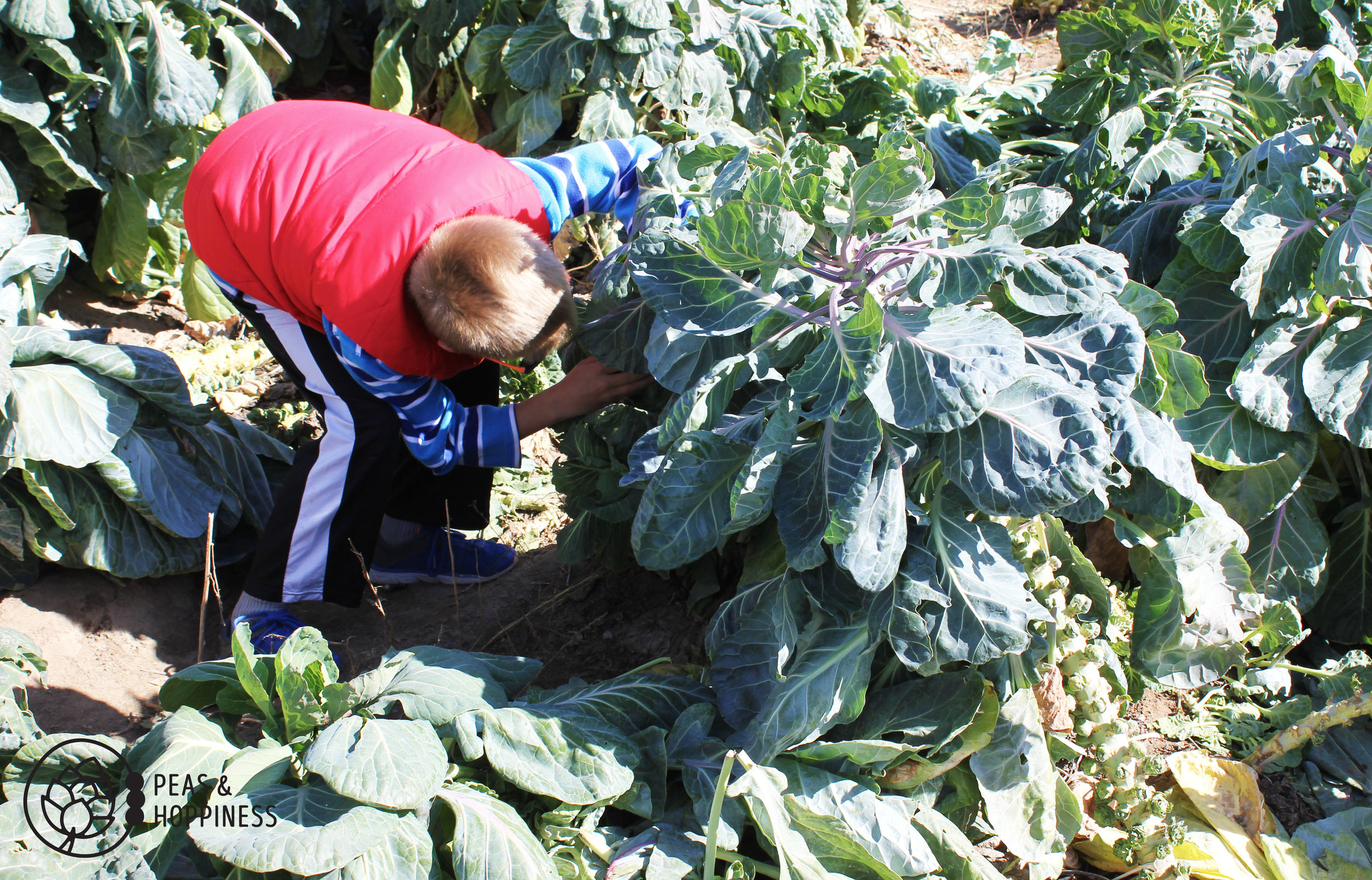
Searching for the elusive Brussels sprout at Miller Farms’ Fall Festival
It’s here at the Fall Festival where Joe lives his dream job of watching kids pick produce and has the opportunity to talk with people about vegetables.
You can find Miller Farms at many Farmers’ Markets in Northern Colorado (click here for location and times). They also offer Community Supported Agriculture (CSA), a deal for people to purchase a share of crops for the entirety of the growing season. This incredible offer allows you to feed your family fresh, local produce all summer long for a fraction of the price at the grocery store; I’ve already signed up!
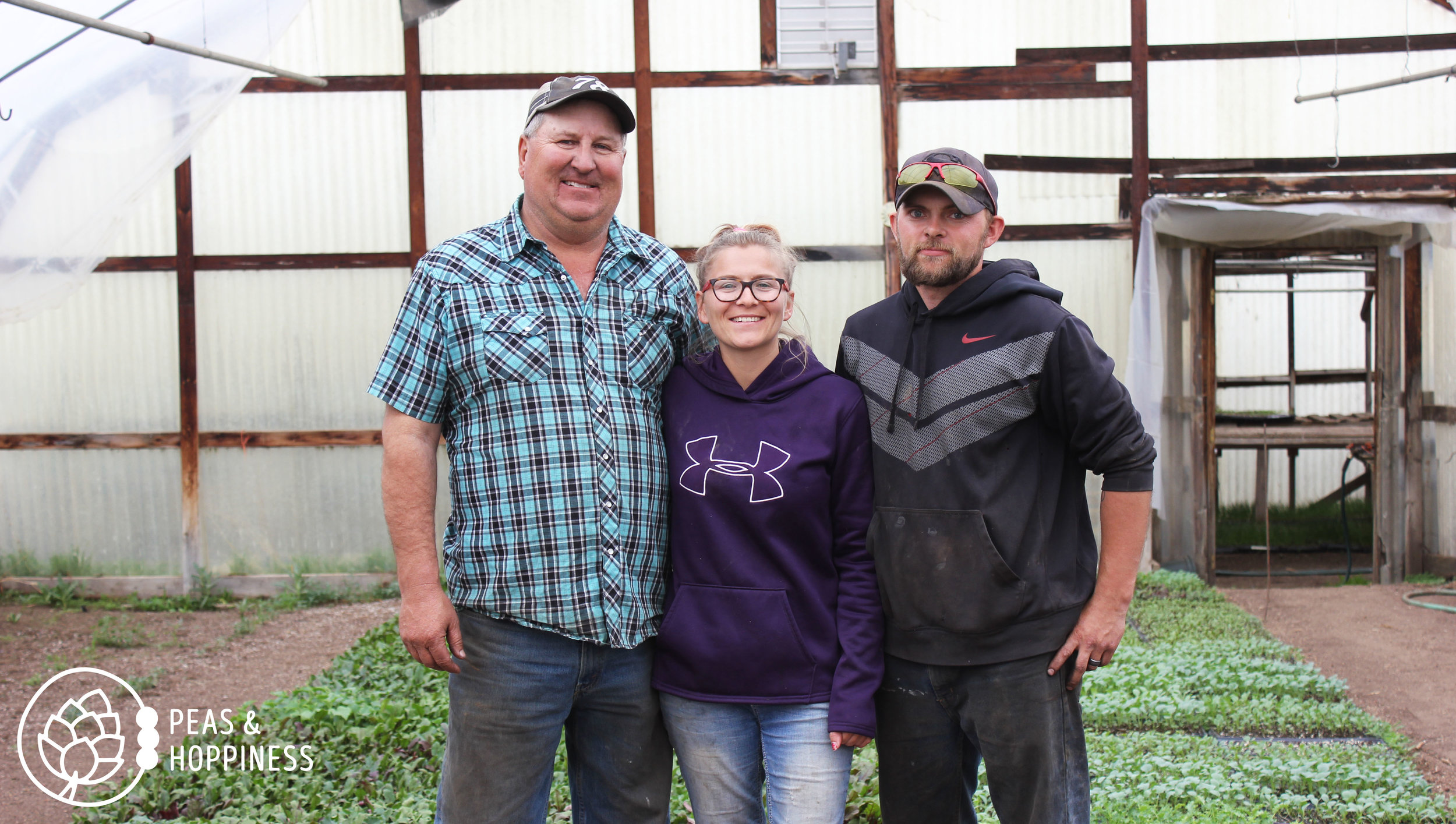
Joe with his daughter Shelli and son-in-law Andy, the future of Miller Farms
If you live in Northern Colorado, I hope to run into you at one of the local Markets. If you’re elsewhere, find the nearest Farmers’ Market near you and support your local farmers so they can continue to supply you with healthy, quality food.
If you see Joe or Chris there, tell them Hi! for me. And most importantly, make sure to tell them Thank you.
With love from Peas & Hoppiness
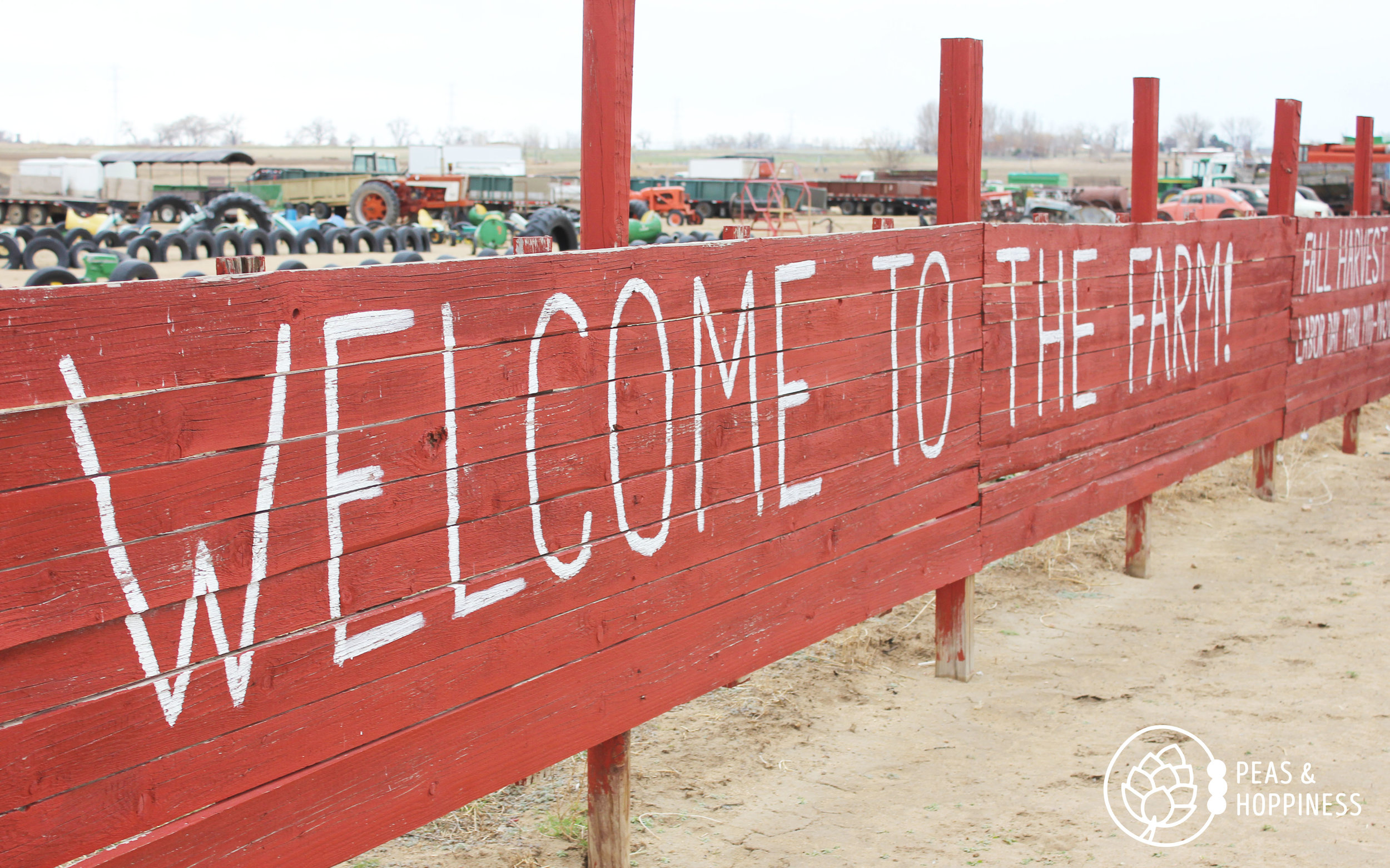
Visit Miller Farms online: Miller Farms Website
In person: 13912 CR 19, Platteville, CO 80651
970.785.6133 // [email protected]
Looking for ways to promote sustainable agriculture? We’ve teamed up with Colorado local farmer Joe Miller to write recipes & meal guides which help you use your local, seasonal produce!
1 thought on “Sustainability Spotlight: Miller Farms Local Vegetable Farm”
I love this! So cool! I hope they’ll be supported by the community!